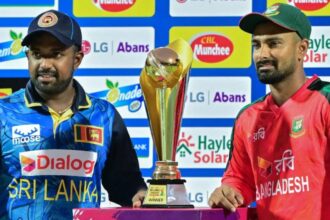In the evolving athletic environment of the United Arab Emirates (UAE), a unique breed of coach is emerging—the cross-sport trainer. These are professionals who apply their skills not to just one discipline, but across multiple sports such as rugby, cricket, and basketball. As the UAE becomes a regional hub for sports innovation and multicultural collaboration, these versatile coaches are driving a new model of athletic development, defined by adaptability, integration, and performance science.
Cross-sport coaching is more than just a matter of convenience—it’s a powerful way to transfer skills, enhance athletic IQ, and build well-rounded competitors. From community leagues to professional clubs, these multi-sport coaches are bringing fresh energy and dynamic thinking to the training field.
The Rise of the Multi-Sport Coach in the UAE
With rugby booming among expatriate communities, cricket flourishing with deep South Asian roots, and basketball gaining traction in schools and academies, the UAE is home to a rich, diverse sporting ecosystem. Many athletes—especially youths—dabble in more than one sport. And in response, coaches are expanding their own toolkits, offering expertise that spans across codes and cultures.
Coaches trained in strength and conditioning, sports science, or general athletic development are especially well-suited to this role. Rather than specialize early, they apply universal principles of movement, coordination, and teamwork to multiple sports.
This has created a new opportunity: developing athletes who are more agile, adaptable, and resilient—while building coaching careers that are broader, deeper, and more impactful.
Shared Skills Across Rugby, Cricket, and Basketball
At first glance, rugby, cricket, and basketball may seem vastly different in terms of strategy and pace. But a closer look reveals shared athletic foundations, which UAE cross-sport coaches are uniquely positioned to develop:
- Agility and footwork: Whether sidestepping a tackle in rugby, pivoting on the court in basketball, or chasing a boundary in cricket, sharp directional change is crucial.
- Hand-eye coordination: Essential in cricket’s batting and catching, basketball’s passing and shooting, and rugby’s handling in tight space.
- Explosive strength: Basketball dunks, rugby scrums, and cricket fast bowling all demand lower-body and core power.
- Tactical awareness: Reading space, anticipating opponents’ moves, and reacting to dynamic plays are critical across all three sports.
Coaches with a broad training base help athletes master these fundamentals in varied settings, leading to more versatile and creative players.
Integrated Conditioning and Injury Prevention
One of the most important contributions of cross-sport coaches in the UAE is in general athletic conditioning. Many are certified in strength and mobility programming, giving them the tools to build:
- Stamina for basketball’s high tempo and rugby’s long halves
- Speed endurance for cricket’s sprint bursts and fielding rotations
- Joint health and flexibility to withstand the physicality of all three sports
Importantly, cross-sport coaches bring injury prevention strategies that borrow from multiple disciplines. For example, basketball’s ACL injury prevention programs are now being applied in rugby conditioning, while cricket’s shoulder mobility protocols are benefiting basketball players.
The result is stronger, safer athletes who can perform across seasons and sports without burnout.
Mental Flexibility and Tactical Intelligence
Cross-sport coaching fosters mental flexibility in athletes. By learning to adapt to the rules, rhythms, and team dynamics of different games, players develop:
- Faster decision-making skills
- Better emotional control under pressure
- Increased game sense and spatial intelligence
UAE coaches who work across disciplines are often praised for improving tactical creativity. A cricketer may learn sharper lateral movement from basketball drills. A rugby player may gain better hand discipline from cricket fielding practice. A basketball player may develop more aggressive drive angles through rugby-style evasion training.
This blending of tactics creates more well-rounded, instinctive competitors, especially in youth development programs.
Real-World UAE Examples
- A Dubai-based strength coach, originally trained in rugby conditioning, now leads performance programs for school cricket academies and basketball clubs. His expertise in explosive power training benefits athletes in all three sports.
- In Abu Dhabi, a South African coach uses basketball-style drills to teach rugby players spacing and passing under pressure. He also consults for local cricket teams on reaction training.
- A Filipino coach in Sharjah, who began with basketball, now runs multi-sport training camps that include fielding drills, contact work, and shooting fundamentals, giving young athletes exposure to multiple disciplines before specialization.
These stories reflect a growing trend: coaches embracing the intersection of sports, rather than rigidly separating them.








